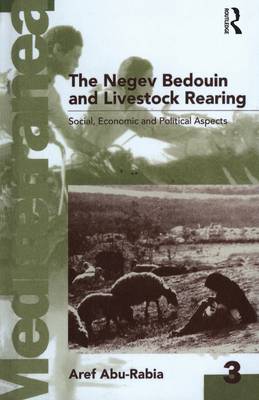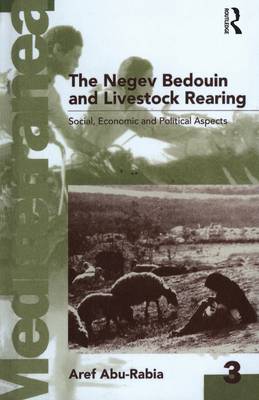
- Afhalen na 1 uur in een winkel met voorraad
- Gratis thuislevering in België vanaf € 30
- Ruim aanbod met 7 miljoen producten
- Afhalen na 1 uur in een winkel met voorraad
- Gratis thuislevering in België vanaf € 30
- Ruim aanbod met 7 miljoen producten
Zoeken
€ 76,45
+ 152 punten
Uitvoering
Omschrijving
In the past sheep-rearing was the main means of existence for most Bedouin. Today it is developing in a new direction. For some it is as important as ever, for others it has become only a subsidiary source of income and a safeguard against economic instability. This volume looks at the effects social, political and economic change has had upon the traditional livelihood of the Negev Bedouin. The author considers how, despite all the problems encountered - such as the expropriation of land by the authorities and the demolition of authorized dwellings - sheep-rearing is still considered to be essential and worthwhile for almost all households. Co-operation between the owners of flocks, shepherds, food suppliers and government officials is essential in the determination of grazing areas and pastoral arrangements. These varied interest groups ensure that sheep-rearing continues to occupy an important place in the Bedouin's cultural identity and the flock remains a unifying factor for the Bedouin family and Israeli society.
Specificaties
Betrokkenen
- Auteur(s):
- Uitgeverij:
Inhoud
- Aantal bladzijden:
- 152
- Taal:
- Engels
- Reeks:
Eigenschappen
- Productcode (EAN):
- 9780367717032
- Verschijningsdatum:
- 31/03/2021
- Uitvoering:
- Paperback
- Formaat:
- Trade paperback (VS)
- Afmetingen:
- 137 mm x 213 mm
- Gewicht:
- 181 g

Alleen bij Standaard Boekhandel
+ 152 punten op je klantenkaart van Standaard Boekhandel
Beoordelingen
We publiceren alleen reviews die voldoen aan de voorwaarden voor reviews. Bekijk onze voorwaarden voor reviews.











